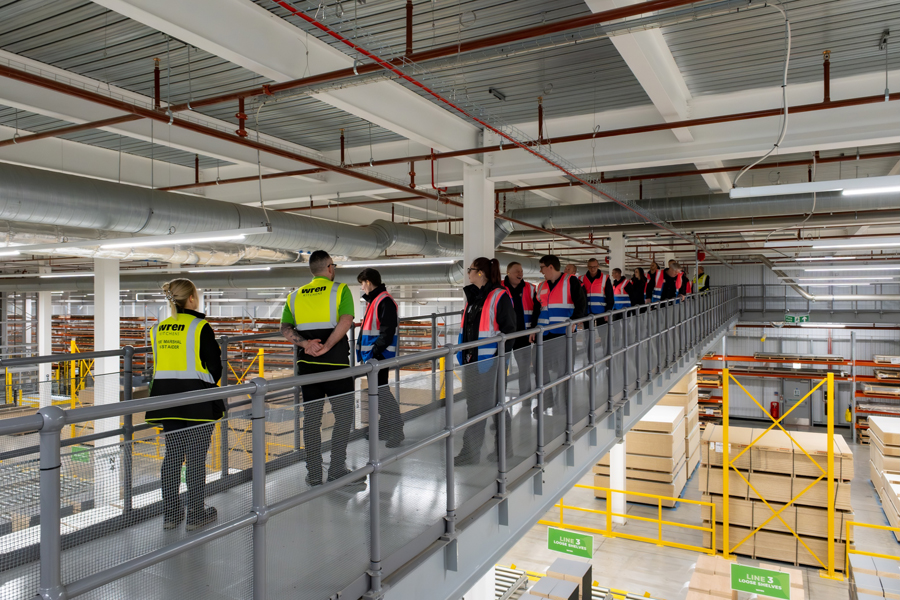CPRE has released a new report, alongside the Aldersgate Group and RenewableUK, which outlines a series of urgent recommendations to reform the UK’s planning system.
The report lays out practical steps to enable the swift roll-out of renewable energy and grid-infrastructure projects that are needed to meet the government’s ambitious 2030 clean power and 2050 net zero targets, while safeguarding our beautiful natural landscapes and making sure local communities have a real voice in shaping their energy future.
The report looks at the planning system for onshore Nationally Significant Infrastructure Projects (NSIPs), pointing out both its strengths and areas that need improvement. While the NSIP process can help deliver large-scale projects, it needs some changes to fully support the UK’s transition to clean energy. Read the report.

The key takeaways:
1. A new approach: Public campaign and strategic planning
We want to see the government lead a nationwide public campaign to build support for renewable energy projects and new grid infrastructure. By collaborating with businesses, NGOs, and other key stakeholders, the campaign would highlight the wide-ranging benefits of clean energy, which would ultimately helping to engage communities and win public support.
2. The Strategic Spatial Energy Plan
The report also suggests creating a Strategic Spatial Energy Plan to tackle planning challenges early by focusing on environmental protection. This approach aims to reduce conflicts and make it easier to roll out renewable energy projects.
Local planning teams also need more support. They should receive more funding and access to centralised or regional resources to help local authorities make quick, informed decisions. By strengthening planning departments, this can reduce delays and speed up project approvals.
3.Putting communities at the heart of clean energy planning
Improving community engagement is key to our vision for a reformed planning system. Local residents need to be involved from the very beginning, with their concerns listened to and addressed. Early engagement will build trust, reduce opposition, and encourage stronger support for projects.
Roger Mortlock, CEO, CPRE, said: “Democracy should not be the victim in the delivery of net zero, nor should we settle for bargain basement solutions. Delivery of new infrastructure will be vastly improved if we listen to people’s concerns and take them with us. With real community engagement and the right support in place, the planning system can accelerate our journey to net zero and find solutions that work for people and the landscapes they love.
“To scale up new infrastructure that could be with us for decades, we need a joined-up strategy for making the best use of our finite supply of land. Rather than think about land use in boxes, let’s consider the land use needs for energy infrastructure alongside farming, housing, climate solutions and nature’s recovery.”
To meet the UK’s clean energy and climate goals, we can’t keep doing things the same way. By taking a more balanced approach to land use—considering energy needs alongside housing, farming, and nature recovery—the planning system can create long-term solutions that benefit both people and the environment.
Rachel Solomon Williams, Executive Director, Aldersgate Group, said: “The planning system has a crucial role to play in achieving the government’s clean energy targets, both in terms of delivering the infrastructure required to decarbonise and bringing communities along with the process. The system needs to be updated so that it supports vital renewable energy projects while genuinely ensuring that local people and nature are considered at every stage of the implementation process. This requires strategic thinking, increased resourcing, stronger public information, and collaboration across the system. Swift progress in this area will have a transformative impact on the UK’s net zero transition and, done correctly, can increase the cross-sector and public consensus on the benefits of delivering clean power by 2030.”
Ana Musat, Executive Director of Policy and Engagement at RenewableUK, said: “Transforming our energy system so that we can meet the Government’s clean power target by 2030 will require a new approach to the way the planning system operates to enable us to build projects faster, whilst ensuring that we continue to do so in a way which protects and enhances our precious biodiversity. This means resourcing local planning departments properly and making local communities fully aware of the benefits of hosting essential new energy infrastructure in terms of investment, jobs, energy security and lower bills. It’s vital that we bring people with us by consulting closely with them on each new project, giving them a strong voice in deciding how we will build the clean energy system of the future”.




















